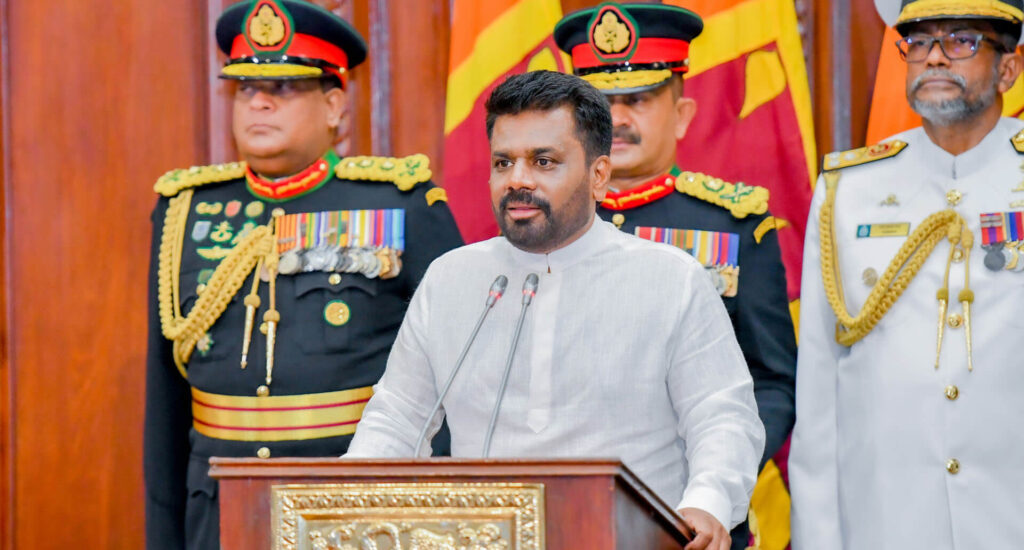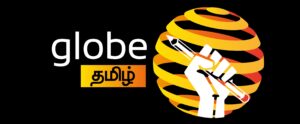
On September 21, 2024, Sri Lankans elected their ninth Executive President, Dissanyaka Mudiyansalage Anura Kumara Dissanayake.
His win was not a simple victory; rather, a phenomenal one. Dissanayake managed to secure 5,634,915 votes in the first preference votes itself, leading by more than a million votes than the candidate second in line, opposition leader Sajith Premadasa.
Prior to 2022, the NPP was not seen as the preferred party. The current president only received 418,553 votes, 3.16% of the total votes, at the 2019 presidential election. The party only received three seats at the 2020 parliamentary elections. The shift in this year’s election was a result of several factors.
AKD’s successful election campaign was perhaps the most important of these. A campaign challenging the elite’s grip on power and emphasizing the need for policies that benefit a broader electorate, driving the way for a more equitable society. A campaign which portrayed NPP as a solutions driven movement for current pressing challenges such as corruption, bureaucratic inefficiencies, and economic instability.
There is no doubt that the public had lost their trust completely with the traditional political elite. Most of the votes to AKD came from areas where rural/urban Sinhalese of the middle class/lower middle class reside. This voter base included most of the people who voted for Gotabaya Rajapaksa in 2019.
The same people ended up being one of the largely affected groups of the economic crisis, which the country is still recovering from. So people used their votes this time to protest against the political elites responsible for the mess, the people used their votes to vent out their anger, and to place one of them in power.
While these causes exist, the fight for economic recovery, the fight against corruption propagated by AKD, and the rage of the public against the political elite seem to be endorsed by only 42.31% of Sri Lankan voters. 57.69% of the other votes were distributed among other candidates. Sajith Premadasa and Ranil Wickremesinghe, both coming from affluent backgrounds, successfully secured over 50% of the votes collectively.
Progress so far?
On September 23, the new president took his oaths at the Presidential Secretariat in Colombo. It was a simple event compared to his predecessors, yet a significant one.
His Inauguration was followed by a series of appointments, starting off with Dr Nandika Sanath Kumanayake’s appointment as the secretary to the president and Ananda Wijepala’s appointment as the president’s private secretary.
The following day, further appointments were made. Dr Harini Amarasuriya was sworn in as the 16th Prime Minister of Sri Lanka. Despite being an alumni of an elite Anglican school, Bishop’s College, Colombo, Dr Amarasuriya’s radical political credentials speak for themselves. She holds a BA (Hons) in Sociology from Hindu College, the University of Delhi; an MA in Applied Anthropology and Development from Macquarie University; and a PhD degree in Social Anthropology from the University of Edinburgh.
Following her appointment, the president proceeded with appointing new secretaries for each ministry. However, Aruni Wijewardene, the Foreign Secretary, and Mahinda Sirirwardene, the Finance Secretary, were reappointed to their same positions.
Following that a new three-member cabinet was formed consisting of the president, Anura Kumara Dissanayake, prime minister Dr Harini Amarasuriya and Vijitha Herath.
He also appointed Dr Najith Indika, former convenor of the IUSF, and a doctor/medical officer by profession to serve as director general of the president’s media division.
Following that the parliament was dissolved as promised in his campaigns and the dates for the next general elections were announced.
Economic standpoint
The new president, in his inaugural address to the nation pledged to prioritize economic stability and to negotiate with the International Monetary Fund (IMF) and relevant creditors to secure debt relief, to restore the confidence in the country’s recovery.
The manifesto of the NPP revolved around building up a production-based economy. Using the nation’s resources such as mineral wealth, tourism, agriculture, and creative industries to bring out its maximum advantage. Additionally, it also advocated for a democratic economy and for a digital transformation which ensures food security, and sustainable resource management.
On the first of October, the cabinet of ministers granted approval to appoint Duminda Hulangamuwa, Chairman of the Ceylon Chamber of Commerce and Professor Anil Fernando of the University of Sri Jayewardenepura as senior economic advisors to the president. These two appointments were honorary without a salary and any other benefits.
So far, the NPP led government has been acting true to its manifesto. The managing director of the IMF, Kristalina Georgieva, in a letter addressed to the new president, stated that, “we remain a steadfast partner and stand ready to assist Sri Lanka to achieve its development and reform goals, including under the ongoing IMF-supported program.”
However in 2023 the current president, and the two other parliamentarians of his party, the current prime minister Dr Amarasuriya and Vijitha Herath, the only three MPs from the NPP at that time, notably voted against the resolution for the implementation of the IMF Extended Fund Facility in April 2023, and also voted against the Central Bank of Sri Lanka Bill in June 2023.
These two bills were vital for the economic recovery at that time. The IMF EFF was a big step forward towards debt restructuring. The Central Bank of Sri Lanka Bill was a significant policy measure for economic recovery, enhancing independence and improving transparency in decision making for the Central Bank of Sri Lanka.
On the October 30, the NPP led government announced that they had abandoned plans to privatize the Sri Lankan Airlines. Professor Anil Jayantha, chairman of the NPP Economic Council said that the national carrier will have to remain with the state given its importance in improving tourism, and hence the airline would not be sold or divested. The taxpayers of Sri Lanka absorbed USD 510 million of the airline’s debt to attract a private investor, by the decision of the previous cabinet.
International media coverage
Anura Kumara Dissanayake’s victory in the 2024 Sri Lankan presidential election has been reported by international media under a variety of angles, emphasizing how both transformational and difficult his victory was.
The media’s emphasis on Dissanayake’s Marxist upbringing, the socioeconomic circumstances that paved the way for his ascent, and the possible consequences of his leadership for both the local and international arenas are indicative of the dramatic change in Sri Lanka’s political landscape.
Most of the foreign websites have highlighted the president Anura Kumara Dissanayake as a Marxist and Leftist leader, representing him as a break from traditional political trends and placing him at the forefront of the country’s economic struggles and public frustration with previous governments, led by mainstream elite parties.
Dissanayake’s policies and the platform he campaigned from aimed at alleviating poverty, reducing inequality, and reducing corruption in the country.
These international websites have also revealed that Sri Lankans in general trust AKD’s policies highly, which has led to an increase of votes for AKD compared to the last presidential election, where he only received 3% of the votes.
The coverage has also closely examined how Dissanayake’s presidency will affect geopolitics. His Marxist views cast doubt on Sri Lanka’s ties to influential regional and international actors, especially when it comes to striking a balance between its relations with China, India, and Western countries.
Given the geopolitical significance of South Asia, certain media conversations examine how his leadership might change Sri Lanka’s standing in the region. There is conjecture over the potential impact of Dissanayake’s policies on foreign alliances and economic ties, particularly in relation to trade and international investment agreements.
Different media outlets have taken different stances on Dissanayake’s victory. Some saw it as a chance for much-needed reform in a country beset by economic mismanagement and corruption, while others are cautiously optimistic.
Some, however, question if he can follow through on his pledges considering the deeply ingrained political and economic problems he will inherit. Experts highlight the obstacles that Dissanayake must overcome to carry out his anti-corruption program, especially in a political system where corruption has long been entrenched.
All things considered, the world press has presented Dissanayake’s win as a representation of a pivotal point in Sri Lankan history that has the potential to change the country’s political and economic trajectory.
Although a lot of people acknowledge his ability to affect change, there is a general lack of confidence regarding the viability of socialist ideas in a country that is juggling various domestic, international, and political demands. It goes without saying that not a few are watching intently to see how Dissanayake’s leadership develops and whether it lives up to the aspirations of a populace that is yearning for change
The public response to AKD’s victory
After Anura Kumara Dissanayake’s win against its biggest rival in the 2024 presidential election held in Sri Lanka recently, the country’s profound economic and social divisions are evident in the differing responses from the public.
After years of political stagnation and economic hardship, many people, particularly those from the working class and younger generations, view Dissanayake’s victory as a breath of fresh air and hope for genuine change. His policies and programs, which aim at combating poverty, corruption, and inequality, appeals to many who feel left behind by past administrations.
Many regions of the nation erupted in celebration, as his followers hailed his win as the beginning of a new age centred on social justice and accountability. However, after the elections, the Election Commission of Sri Lanka declared that it was the most peaceful ever held in the country, notwithstanding allegations by political pundits and Opposition MPs that the Commission could have done better in its conduct.
However, there is also significant apprehension, particularly from the business community and political elites who are wary of Dissanayake’s socialist policies. Critics fear that his plans for nationalization and state control over industries could lead to further economic instability, particularly as Sri Lanka continues to struggle with debt and inflation.
There are concerns about whether his promises of reform can be effectively implemented in a complex political landscape, where entrenched interests might resist change.
On a broader level, many Sri Lankans remain cautiously optimistic but pragmatic. They are eager for solutions to the country’s deepening crisis but are also aware of the daunting challenges ahead. While some segments of society celebrate the election as a victory for the people, others remain sceptical, adopting a “wait and see” approach as Dissanayake begins his term. Overall, public reaction reflects a mixture of hope, apprehension, and uncertainty as the country looks to the future.
The NPP winning a majority in the general election is still not a clear endpoint. With their strict policies preventing coalitions and crossovers, they have a long way to go from increasing their seats in the parliament from 3 to 113. It is a difficult task to be done, but AKD has the expertise and experience of doing something similar, therefore it is possible.
Despite all the promises, corruption, ideologies and controversies. President Anura Kumara Dissanayake is tasked with an important role to serve the people. Most importantly the people have trusted him to take over this role at a crucial time of economic recovery and growth. The president’s seat and the powers vested to it are given to him as a responsibility, not a privilege. He is now the captain of the ship, if he fails the whole country drowns. “How will he steer the ship?” is a question which only time can answer.
This analysis is written by By Mohamed Shafkath and Dulmi Thimansa for Factum Perspective

